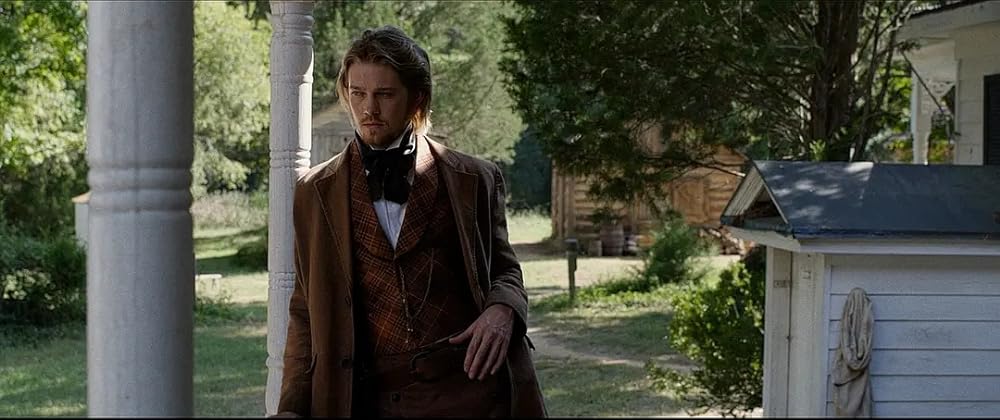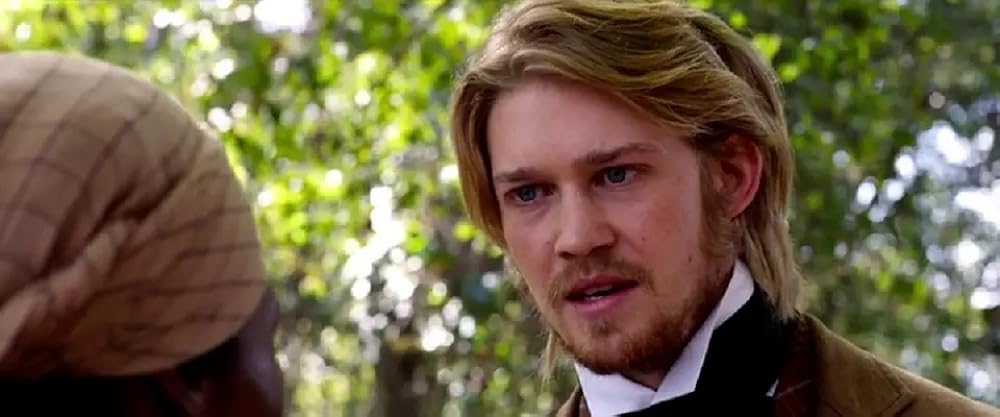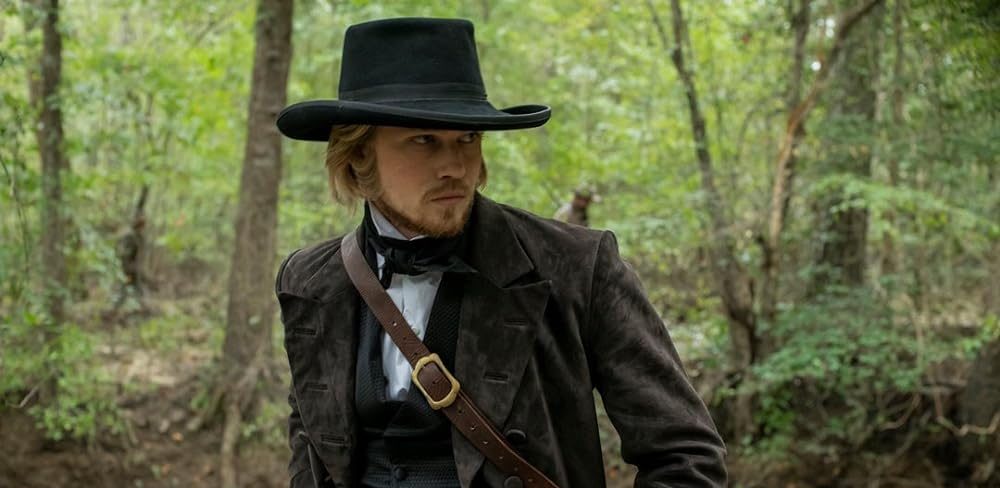In director Kasi Lemmons’ action drama film ‘Harriet,’ an enslaved girl, Minty, is tired of this cycle of ownership that passes on to future generations and wants her freedom at any cost. She bravely escapes from her overseers in Maryland to Philadelphia all alone by foot and changes her name to Harriet Tubman (Cynthia Erivo) as a free woman. She makes attempts to come back to free the rest of her family, but none of it is easy. The white slave owners aren’t too happy with this situation, and her biggest obstacle comes in the form of Gideon Brodess (Joe Alwyn), the son of Edward Brodess, who has owned her family for years.
Gideon has grown up with Harriet and has complicated feelings for her. He remembers her as the young girl who prayed for him when he was sick and didn’t want to let her go. But he also treats her badly and does everything possible to prevent her from escaping. When he finds out she isn’t dead like he thought, he forgets everything and starts chasing her, feeling entitled about owning her. Her success makes him angry, and he uses the anger to corner her. Since he is such an overwhelming presence in Harriet’s life, it makes us wonder if he’s based on a real person.
Gideon Brodess is Fictional But Inspired By Real Slave Owners
As an abolitionist, Harriet faced many challenges in her work. But surprisingly, someone who makes for such an apt villain in her story in the film is not based on a real person. Despite the fact that the Brodess family who owned Harriet is real, including the patriarch Edward Brodess, he is not known to have any child named Gideon, who shared such a relationship with Harriet. Edward and Eliza had eight children, namely John, Joseph, William Richard, Charles, Benjamin, Thomas, Mary Ann and Henrietta. Since very little is known about any of them, it’s very unlikely that any of their sons have inspired Gideon.

In reality, just like the film, Harriet, who was Minty or Araminta Ross back then, ran way after Edward Brodess died in 1849 since she knew she was going to get sold to someone else down South from where no one returned. This was the general impression after her sisters were sold similarly when she was young. Also desperate for her freedom, Harriet escaped the Brodess farm but didn’t have to face the biggest obstacle of Gideon blocking her every move in real life, as is shown in the film. In real life, she escaped with two of her brothers, who were too afraid to leave, forcing Harriet to continue her journey to Philadelphia alone and figure out everything on the way.
Even if Gideon is fictional, he’s a very prominent antagonist because he makes Harriet realize what she is fighting for. He, therefore, represents the entire Brodess family in a way since none of them wanted to let their slaves go. Even if it is for dramatization, Gideon’s character helps Harriet realize she needs to get away from this white privilege and the need for people to own other people and ruin their lives in the process. Gideon seems to echo the tone of every white family in the area of the time who profited from selling off their slaves and seemed to be in denial of their human rights and the fact that freedom for them was even a remote possibility.

By showing the hurt to his ego when Harriet runs away in the film, Gideon represents every white man who didn’t feel the need for black people to have lives away from them since the idea of ownership was so dominant in their minds. It becomes obvious from some examples that Gideon thinks of Harriet as his property and feels responsible for her and even thinks that by not giving her a harsh punishment, he’s doing her a favor.
This comes out in scenes when he’s trying to negotiate with Harriet the first time she tries to escape and in another scene where he refuses to let anyone kill Harriet, even if he desperately wants her caught because he thinks of her as his property and doesn’t want anyone to harm her except himself. Since such a prevalent mindset among the white owners would have been difficult to show with every family, Gideon seems to be a representative for the lot to portray how overseers were treating their slaves at the point, which seems to justify his presence in a biography like this one.
Read More: The True Story Behind Harriet, Explained


You must be logged in to post a comment.